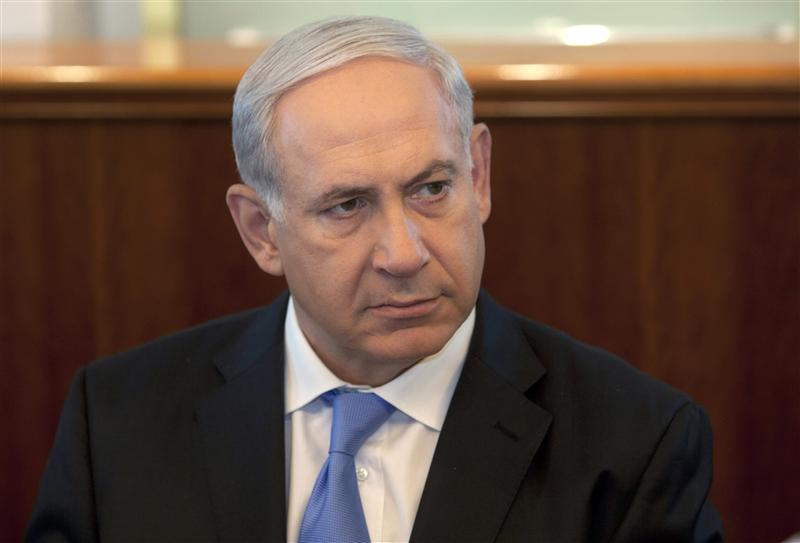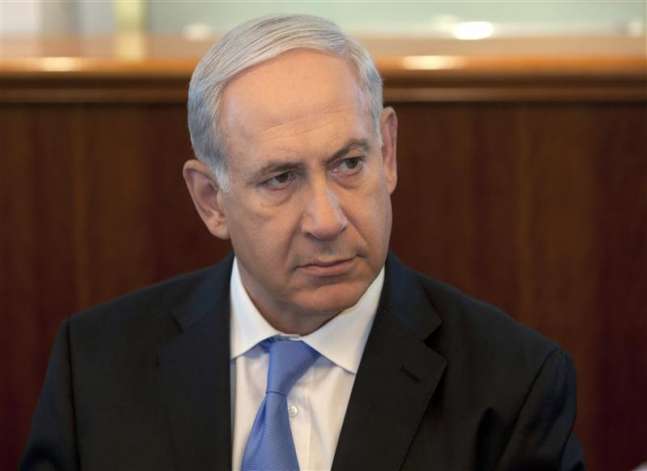Latest NEWS
- Aswat Masriya, the last word
- Roundup of Egypt's press headlines on March 15, 2017
- Roundup of Egypt's press headlines on March 14, 2017
- Former Egyptian President Hosni Mubarak to be released: lawyer
- Roundup of Egypt's press headlines on March 13, 2017
- Egypt's capital set to grow by half a million in 2017
- Egypt's wheat reserves to double with start of harvest -supply min
- Roundup of Egypt's press headlines on March 12, 2017
Egypt foreign minister to talk Mideast peace in rare visit to Israel
CAIRO/JERUSALEM, Jul 10 (Reuters) – Egypt's foreign minister will meet Israeli Prime Minister Benjamin Netanyahu on Sunday during a rare visit to Israel aimed at reviving the moribund Israeli-Palestinian peace process.
Sameh Shoukry's visit to Israel -- the first by an Egyptian foreign minister in nine years -- follows a similar meeting with Palestinian officials in Ramallah on June 29.
It comes as France leads a renewed push to put peace efforts back on the agenda with an international peace conference held on June 3. The French initiative seeks to bring the two sides back to the table by year-end and was welcomed by the Palestinians.
But Israeli officials have said only direct talks can end the decades-old conflict.
Egypt's foreign ministry said in a statement that Shoukry's visit was part of a push by Cairo to build confidence between Israel and the Palestinians with the ultimate aim of resuming direct talks to reach a comprehensive settlement that would give the Palestinians a state and Israel security.
"The foreign minister will hold extensive consultations during his visit with... Netanyahu aimed at addressing many files... with a focus on the Palestinian issue," the statement said.
Netanyahu announced the visit in public remarks on Sunday at the weekly meeting of his cabinet. He said he would hold two meetings during the day with Shoukry.
"Today's visit is important in many respects. It attests to the change that has begun in Israeli-Egyptian relations, including President (Abdel Fattah) al-Sisi's important call to advance the peace process with the Palestinians and Arab countries as well."
Sisi called on Palestinians and Israelis in May to seize the opportunity to make a historic peace, offering Israel the tantalising prospect of warmer ties should it reach a just peace.
Egypt was the first of a handful of Arab countries to recognise Israel with a U.S.-sponsored peace accord in 1979, but Egyptian attitudes to their neighbour remain icy due to what many Arabs see as the continued Israeli occupation of land that is meant to form a Palestinian state.
Sisi offered the 2002 Arab peace initiative as a potential way ahead. The initiative offered full recognition of Israel but only if it gave up all land seized in the 1967 Middle East war and agreed to a "just solution" for Palestinian refugees.
After Sisi's offer, Netanyahu said he would be willing to discuss the Arab peace initiative.
Egypt's foreign ministry statement said peace should involve the creation of an independent Palestinian state on 1967 borders with East Jerusalem as its capital. It did not mention refugees.
Previous attempts to engage the adversaries have come to nought. The Palestinians say Israeli settlement expansion denies them a viable state they seek in the occupied West Bank, the Gaza Strip and a capital in Arab East Jerusalem.
Israel has demanded tighter security measures from the Palestinians.
(Reporting by Lin Noueihed in Cairo and Jeffrey Heller in Jerusalem; editing by Adrian Croft)















